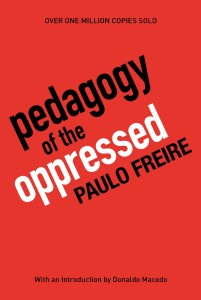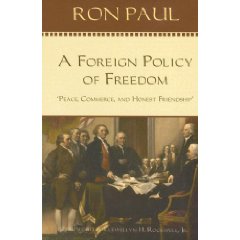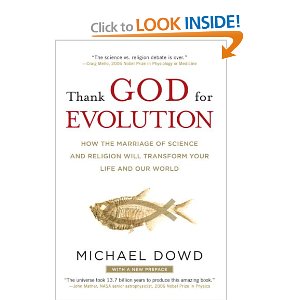 The Best and Most Essential Guide, Not the Whole Picture, January 11, 2008
The Best and Most Essential Guide, Not the Whole Picture, January 11, 2008
Lester R. Brown
I have followed Lester Brown's dedication to evaluating the state of our planet for over a decade, and wrote to the Nobel Committee urging them to recognize him, Herman Daly, and Paul Kawkins and the two Lovins instead of Al Gore. They have all done a great deal more of the heavy lifting.
I decided to purchase this book when Medard Gabel, creator of the analog World Game with Buchminster Fuller, gave me a budget for saving the planet that totals no more than $230 billion a year (at a time when we spend $1.3 trillion waging war).
I've gone through the book and consider it to be a best in class effort, a seminal work no one else on the planet could have produced. In the author's chosen area of focus, there is no other book like this one. However, some other books are easier to read and understand, such as High Noon 20 Global Problems, 20 Years to Solve Them, and others do a better job of addressing all ten high-level threats to Humanity and Earth, such as A More Secure World: Our Shared Responsibility–Report of the Secretary-General's High-level Panel on Threats, Challenges and Change.
Here are a few highlights:
+ Book is offered free online (but the hard copy is much better deal, easier to work with, mark up and return to as a reference….use the online version to search for specifics.
+ The Introduction is clear and inspiring. This book is loaded with carefully collected facts ably presented.
+ $12 per gallon of fuel in “true costs” externalized and not billed
+ One 25 gallon ethanol tank takes enough grain to feed a person for a year. This means that those in hunger going to double from 600 million to 1.2 billion, as cars compete for grain (which is nuts).
+ Food-oil axis is developing into a triple crisis: oil, food, water. As 50% live in cities, the fuel intensity of food in the face of Peak Oil is becoming a major issue.
+ Stopping the ethanol program dead in its tracks is the single best thing US Government could do, followed my more wind farms and an end to coal plants.
+ Amazon reaching a tipping point, mega-fires are foreseen (as with New York City if its 1920's water system fails and a firestorm emerges)
+ Western model will not work for China or India (or Brazil, Indonesia, Iran, Russia, Venezuela, and other Wild Cards)
+ Ice cap is melting fast, gfalciers are melting fast and causing small earthquakes.
+ 600 million refugees expected if sea level rises ten meters (33 feet)
+ Mortality has been reduced, but fertility has not, leaving persistent population issues.
+ 15 of 24 primary ecosystems degraded or pushed beyond their limits.
+ Climate has become more destructive, with 55 weather events costing $1.5 billion or more each since the 1980's.
+ Great discussion of the ecology of cities, Bioneers would resonate with all the author recommends.
+ Scarcity crossing national boundaries.
+ Excellent notes, heavy reliance on UN and other primary sources.
+ He proposes a budget of $190 billion a year to achieve our social goals and restore the Earth.
+ The only thing missing from this book are some of the positives, for example bacteria as an energy source, healing bacteria, eletrified water as a cleanser needed no other ingredients, the recovery of the Dead Sea with furrows that retain every drop of water.
I am so surprised to find only one review that I wanted to quickly add my praise for this author, while also pointing out three things that a handful of wealthy philanthropists could do tomorrow to execute this vision.
#1 We should all support the World Index of Social and Environmental Responsibility (WISER) as created by the Natural Capital Institute, and encourage colleges and universities around the world to begin loading the “true cost” information for all products and services (e.g. 4000 gallons of water in a designer T-shirt). Delivered to end-users via cell phone query at the point sale, this will dramatically affect markets.
#2 We should ask the 90 major foundations in the USA to host a summit to which all governments, non-governmental organizations, prominent wealthy individuals, and the United Nations are invited. The objective should be to create an online “Range of Gifts” Table that identifies specific contributions that can be made at every cost level, to eradicate the ten high level threats within fifteen years, by harmonizing the twelve policies such that ALL organizations and ALL individuals can opt in on a master budget that is strategically sound, operationally executable, and tactically open to all.
#3 We must absorb the wisdom of C. K. Prahalad, Alvin and Heidi Toffler, and others listed below, and recognize that the only enduring sustainable solutioin lies in educating the five billion poor, who do not have the time or the money to sit in a classroom for 18-22 years. We can create today, using Telelanguage.com, an immediate registry of 100 million volunteers with Internet access, speaking 183 languages among them, who can educate the poor–who are not stupid, just illiterate–one cell call at a time.
I believe that Reuniting America, True Majority, and WISER are reaching critical mass. All we lack now is one well endowed champion who sees that it is our collective intelligence that will solve the world's problems, and there is no need to run for President. Here are the handful of books I would recommend to Michael Bloomberg if he were to ask me today how to fulfil his vision of political, educational, and philanthropic reform.
Visit Earth Intelligence Network for free public intelligence on the ten threats, twelve policies, and eight challengers. The weekly report “GLOBAL CHALLENGES: The Week in Review,” will appeal to anyone interested in this book and its topic.
The Wealth of Networks: How Social Production Transforms Markets and Freedom
The Fortune at the Bottom of the Pyramid: Eradicating Poverty Through Profits (Wharton School Publishing Paperbacks)
Revolutionary Wealth: How it will be created and how it will change our lives
Infinite Wealth: A New World of Collaboration and Abundance in the Knowledge Era
THE SMART NATION ACT: Public Intelligence in the Public Interest
The Future of Life








